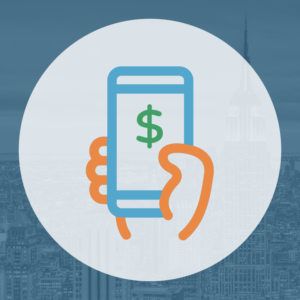 Do you think your financial health is good shape? Or are you worried about something? It’s ok to feel nervous about finances. Most people do because they don’t know what there are reading or hearing about. There is a lack of financial literacy among all generations, not just Millennials that keeps everyone on edge about money. That is one of the reasons I write this blog and tweet and create all kinds of content. I want to help educate everyone about personal finance because it is part of our lives every day. But how do you know if you need to work on something? Well, below are 7 financial red flags that can be warning signs that you need to spend some time looking at your finances. Take a look and see if there are areas for improvement in your financial health.
Do you think your financial health is good shape? Or are you worried about something? It’s ok to feel nervous about finances. Most people do because they don’t know what there are reading or hearing about. There is a lack of financial literacy among all generations, not just Millennials that keeps everyone on edge about money. That is one of the reasons I write this blog and tweet and create all kinds of content. I want to help educate everyone about personal finance because it is part of our lives every day. But how do you know if you need to work on something? Well, below are 7 financial red flags that can be warning signs that you need to spend some time looking at your finances. Take a look and see if there are areas for improvement in your financial health.
- You don’t have goals. – You’ve got to have financial goals. If you don’t have any goals in life, then what are you working towards? What’s the point of trying to save money if you don’t know why you are saving it? Goals give you motivation. You need motivation to manage your finances properly. Take a few minutes and just jot down a few goals using this worksheet. The goals don’t have to be complicated, but you just must have something.
- You don’t have a cash reserve. – If you don’t have at least 3-6 months’ worth of living expenses in a cash reserve for an emergency then that is a major red flag. Life happens, and you should be prepared for it. If you get laid off and it takes some time to find a new job, you need to be able to pay rent and buy groceries. Don’t let a situation like that derail all your goals because you have to tap into other sources to cover an emergency.
- You don’t have a handle on cash flow and budget. – Cash flow is a tough one to master, but if you have no idea what you are spending your money on then you aren’t in control of your finances. It’s not fun to look back at your expenses (buying that extra round of drinks for the group maybe wasn’t the best call), but you have to be in control. Once you see what you are spending money on, you can create a budget to give you guidelines going forward. Sticking to that budget will allow you to work on achieving your goals.
- Your debt balance keeps you up at night. – If you have debt, then you already know that it can be challenging, but it can be more than just the numbers surrounding your debt. How you feel about your debt can be a red flag too. If you don’t feel in control, then now is the time to do something about it. It’s up to you how you prioritize your goals to handle the debt. If you have other goals, you might want to stick to your current repayment plan versus accelerating it. And maybe it’s not the balance that keeps you up at night but the interest rate on your debt. A high interest rate can add up over time and mean you end up paying even more for your debt. If it is really high you might want to consider options to possibly refinance and lower the rate or pay off the loans sooner. Just be cautious with refinancing.
- You are drowning in debt payments. – This goes hand in hand with cash flow and budgeting. If you can’t even make the minimum monthly payment, then you have hit the point where you need to make some tough decisions. What is the reason you can’t make the payments? Are you truly working as hard as possible just not making enough money or do you need to work on your budget and cut back on frivolous spending? There are some last-ditch options such as switching to an income-driven repayment plan, deferment or forbearance. But those can have consequences. The better plan might be to work on your budget and find ways to bring in more income. There’s a reason so many Millennials have a side-hustle.
- You have no long-term savings. – For younger Millennials, this may not be in the cards yet, but for older Millennials, if you don’t have anything set aside for financial independence, that is not a good sign. Time is on your side when saving for long term goals so take advantage of it and start saving now. This should be one of those goals on your list. Don’t just assume you can save later for that. I know it seems like a long way off, but as life progresses with houses and kids, the amount of money you may feel like you can set aside may decrease. If you get in the habit of saving now, you can better handle cash flow down the road.
- You haven’t done any protection or estate planning. – If you are a little farther along in life and have things like a mortgage and family, then you should have considered life insurance and estate planning. They are an important piece of your overall financial health but often forgotten. If you don’t have these then you may not be adequately protected for the future or the future of your family. Don’t leave the most important things in your life unprotected.
Related Articles
[Fatherly] 8 Signs You’re In Good Financial Health
[Credit.com] 3 Warning Signs Your Student Debt is an Emergency
